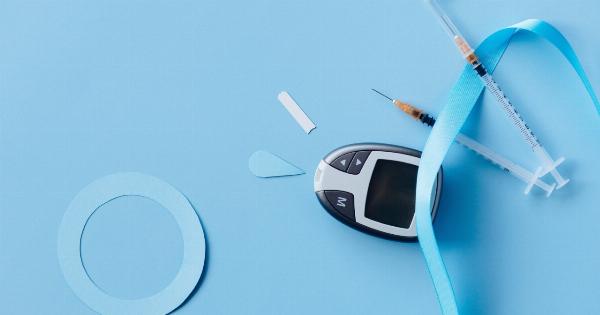For decades, people with diabetes have relied on insulin injections to manage their blood sugar levels. But this is about to change. Researchers have been working on developing insulin pills as an alternative to injections.
The Drawbacks of Insulin Injections
Insulin injections have been the primary method of delivering insulin for over a century. While it has been effective in helping people manage their diabetes, injections have many drawbacks. Here are some of the most significant drawbacks:.
Painful
For many people, insulin injections can be painful, especially when given in certain places such as the stomach. The needles are also often big enough to cause discomfort during administration.
Inconvenient
Constantly having to inject oneself can be time-consuming and inconvenient. It can also be hard to find a safe and private space to administer the injections, especially when traveling or in public spaces.
Risk of Infection and Skin Reactions
Repeated injections can cause skin reactions, including redness, itching, and swelling on the injection site. The skin can become less sensitive to insulin absorption over time, leading to poor blood glucose control.
Furthermore, there is always a risk of infection with each needle stick, especially if proper precautions are not taken.
The Advancements of Insulin Pills
Insulin pills could change all of this. Research shows that insulin pills can effectively deliver insulin to the bloodstream, with fewer side effects and less fuss than injections. Here are some advantages of insulin pills over injections:.
Pain-Free
Unlike injections, insulin pills do not require needles and do not cause any physical pain. People only need to swallow a pill as they would with other medications.
Easier to Take
Insulin pills can be taken anywhere, anytime, and without the need for special care or accessories. They do not require refrigeration like insulin injections, making it easier for people to keep track of their medication while on the go.
No Risk of Skin Reactions or Infections
Since insulin is absorbed through the digestive system with pills, there is no risk of skin reactions or infections. This eliminates the need for frequent needle sticks and reduces the risk of complications such as abscesses or cellulitis.
Less Need for Monitoring
With insulin injections, people need to monitor their blood glucose levels frequently to ensure they are adjusting the dosage correctly.
Insulin pills are designed to be more stable and consistent in their absorption, reducing the need for constant monitoring.
Challenges of Insulin Pills
While insulin pills show promise, they are not without challenges. Here are some of the primary challenges that researchers are addressing:.
Low Bioavailability
Insulin pills are not absorbed as efficiently as insulin injections, resulting in low bioavailability. Researchers are therefore working on developing new technologies that can enhance the absorption rate of insulin and make it more efficient.
Easily Degrades in the Digestive System
Insulin is a fragile protein that easily degrades in the digestive system, making it difficult to absorb and utilize.
Researchers are working on developing protective coatings for insulin pills to prevent the protein from breaking down in the digestive system.
Side Effects and Efficacy
Insulin pills may cause side effects such as nausea, vomiting, and diarrhea, and may have different efficacy profiles compared to insulin injections.
Researchers are working to improve the effectiveness and safety of insulin pills and fine-tune the dosage to achieve optimal blood sugar levels.
Conclusion
Insulin injections have been the primary method of treating diabetes for more than a century. But insulin pills are poised to change this.
While insulin pills have their challenges, researchers are confident that they can overcome these obstacles to develop an effective insulin delivery system that is convenient, pain-free, and easy to take.






























